Dr. Sally Adel: High-Achieving Women Can Have It All
She’s a mom, professor, MD, speech therapist, swallowing and feeding therapist, and our hero
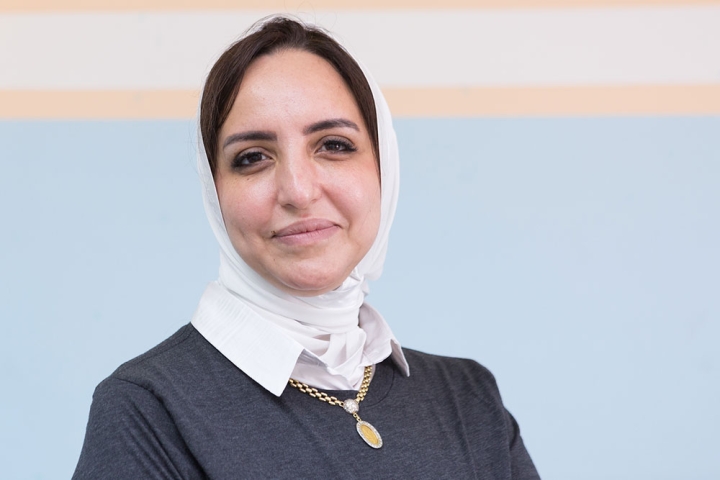
Dr. Sally Adel is a lecturer of phoniatrics and a speech therapist at Alexandria University Hospital in Egypt. A proud Smile Train partner, she helps give the gift of clear, confident speech to children with clefts. In honor of International Women’s Day, we caught up with this trailblazer to discuss what it means to have it all as a woman in the Middle East at the top of her demanding profession, how her experiences motivate her work helping cleft-affected girls and women overcome their own added burdens, one of her most memorable patients, and more.
What made you want to be a speech pathologist?
Communication and feeding are the two major events that we do daily, and I feel they should be done without any effort — they are how we connect and how we nourish ourselves; they are even how we organize our social events, around food and talking. And I really love talking! So when I learned that some people have many barriers to eating and speaking, it made me feel that I have a responsibility towards these patients, that I need to help them connect more, and feel more included.
How did being a woman affect your career pursuit?
In the Middle East, being a female in a medical field means you always have to prove yourself. It's not as easy for us to get into a position, and once you have it, you're always judged differently. Bosses often do not get how much we suffer to do it all, to be mothers, wives, workers, and researchers. I have an MD and a PhD, yet I still see male doctors who always question the abilities of their female colleagues ., whether we are able to coordinate the work, help them enough, or even be efficient enough in handling our patients. So it's not always easy. I’ve felt all through my journey that I have to prove myself and do my job even better than male doctors just to be accepted as part of teams.
However, this just further motivates me to be more specialized, more unique; to show that people with a different experience, background, and gender can do things in an even better way than you expect.
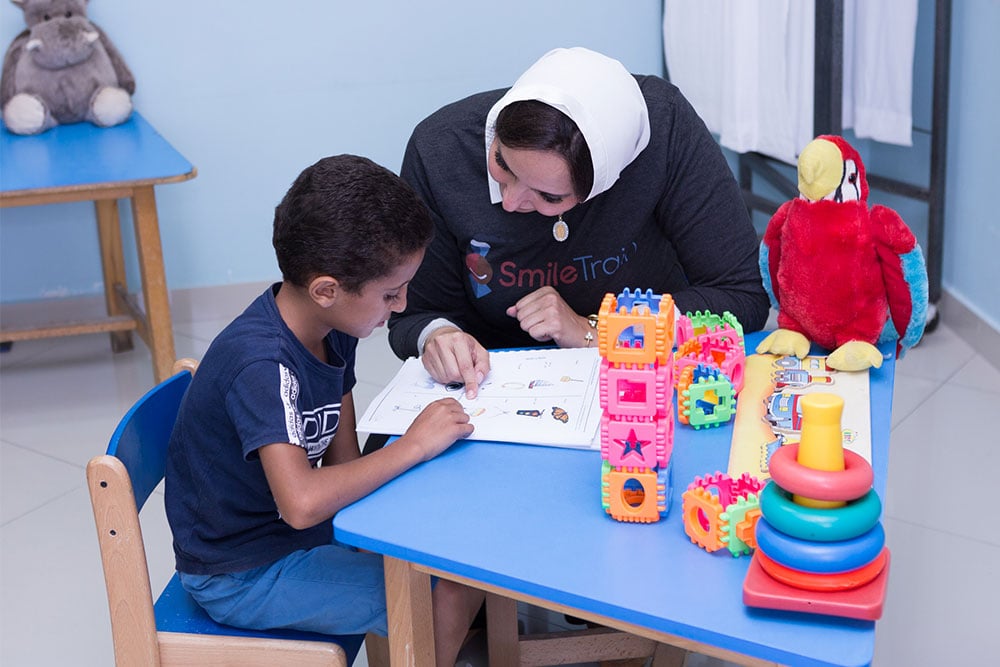
How did you start working with patients with clefts?
I started seeing children with clefts the first year of my residency at our hospital’s speech therapy clinic. I did speech assessments and feeding and swallowing counseling starting from when they were just born, and continued working with them as they grew up. I saw how many of my patients really had a hard time at school and with their families and I felt called to help them.
How did you first encounter Smile Train?
At first, I knew that Smile Train helped some children at the Alexandria University Faculty of Medicine, but I didn't know how the program was organized. Then Dr. Mohamed Koratim reached out and told me that he was building up the rest of the cleft team here and they needed someone to help with speech and feeding assessment and rehabilitation. Previously, I felt like we were all working as separate islands, each specialty working alone without reaching out to others or setting a defined plan of treatment for our patients. But now Dr. Mohamed was saying that we will be working as a team — he as the surgeon, plus an orthodontist, a prosthetist, and me. That was really exciting for me.
Why is it so important that children with clefts receive speech treatment?
Speech treatment ideally starts at birth with feeding and nutrition counseling, which almost every baby with a cleft requires to reach a healthy weight for surgery. So while we are teaching parents techniques for feeing their baby, we are also showing them how to initiate vocalizations and speech sounds starting from babbling. These parents are often feeling overwhelmed and struggling to cope with having had a baby with a cleft, and this practice creates positive early bonding experiences that will also help later with both speech and feeding. After this, we start also teaching parents about language stimulation and how to check if their child has any hearing problems.
Once the child is three or four years old, and has had their initial cleft surgeries, we start targeting individual speech problems.
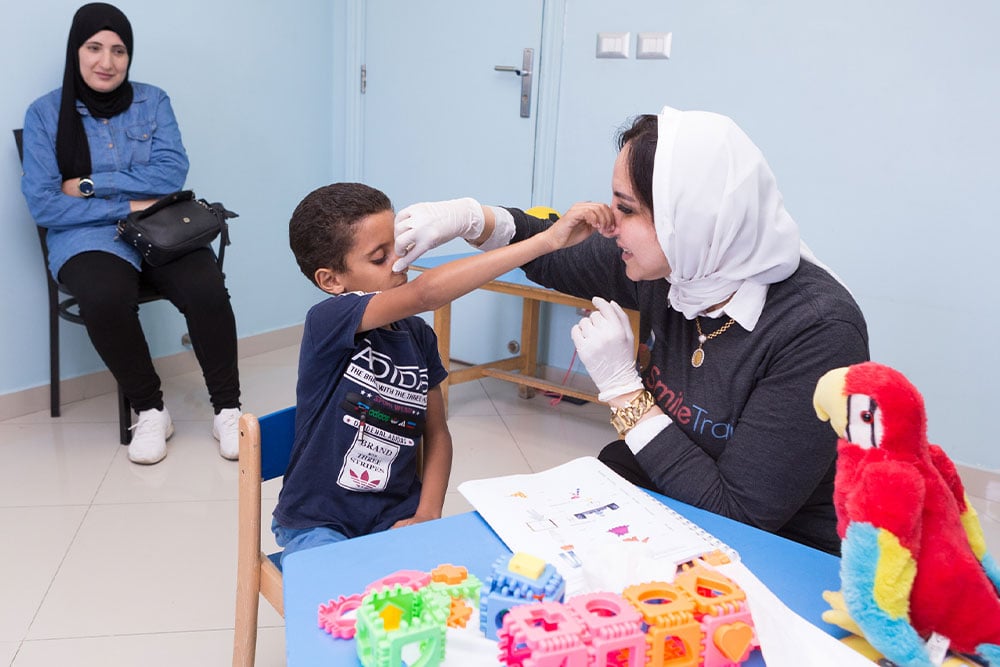
From your perspective, why does Smile Train’s model of local partnership and investment matter?
As I said, before Smile Train, I felt we were all working so hard but couldn't do the best for our patients because we were all working as individual islands. Now I get to collaborate with the medical team better and have access to the latest and best training materials, some of which I have even shared with my master’s students. Our improved communication also allows me to think in a broader way than I used to, since every aspect of care is now more coordinated, more organized; I get to see the results of my work and the results of my decisions and those of the rest of the cleft team.
That makes me feel closer to our families and patients. When I see how their quality of speech and feeding has improved, I feel so lucky to be doing this work.
What's your favorite part of your job?
Staying with the moms and the children — I love them so much! They are all simply fighters. They give me the energy to keep helping others, to always try to learn more so I can help them in a better way.. I love seeing the way children light up when they are around people who accept them. It makes me so happy when I can break through and build a rapport with them, when I can make the journey a little less scary for children and their parents.
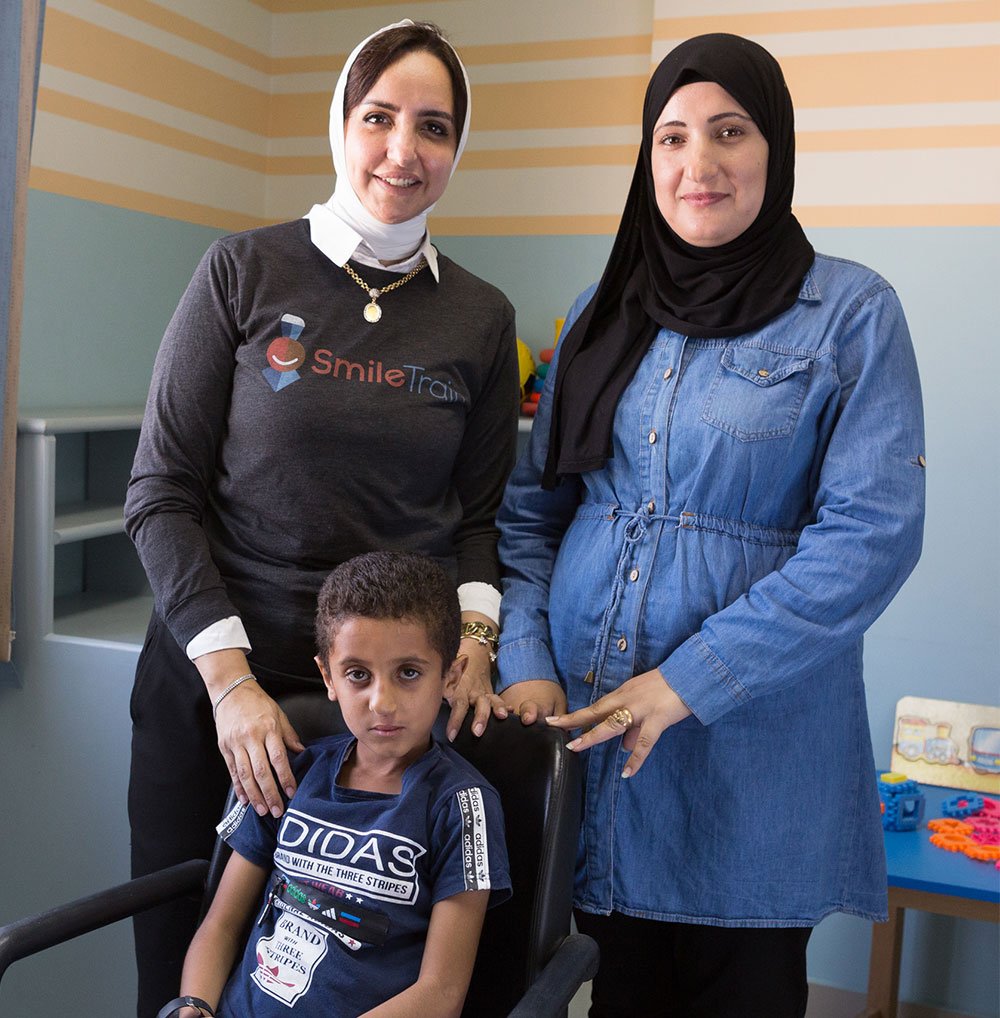
One of the greatest moments is when my patients’ moms call me with updates or to say, “Please come stay with me during the surgery because I need to see you.” My patients usually want to see me too, before they go into surgery. I always tease Dr. Mohamed about this. I say, “You do the surgeries, but I get to be part of their families.”
Is there a patient who particularly stands out to you, whose journey particularly moved you?
I will never forget one of my patients whose parents prayed for a child for 18 years before they had her. When she was born, her father discovered he had kidney failure and started dialysis. Her mother came to feel so lonely because she felt like she had to do everything to take care of her husband while also not making her daughter feel like she was less than anyone else. It was such a pity because this girl is really smart but was also very shy because of her cleft. She didn’t want to participate in school.
Everything started to change once she received treatment. She needed several surgeries, but even after the first one, her mother came and told me that she had already started to reach out more at school, to make more friends. I have never met this girl’s father, but her mother told me he feels so happy, so proud of his daughter — and of her for doing everything for them. This was really a happy moment for me.
The theme for International Women’s Day this year is #EmbraceEquity. What does equity mean to you?
To me, equity means I really can do my best. I can push limits, change the idea of the females being held back from success or from basic rights like education and equal work opportunities. . It means I can be a mother and help my students and my patients, and this will only help me achieve more in more fields. Actually, I don't like to limit myself to just equity. I like to push more barriers.
Have you found that girls with clefts are treated differently from boys with clefts?
Yes. Girls are much, much less accepted. I’ve seen older sisters or even aunts coming in with younger boys for care. Why didn't they get care as early as this boy? I don't like to judge these families because I can understand that they might have been overwhelmed earlier, , but I always ask myself that question. I’ve also seen some parents who insist on homeschooling their daughter until she finishes all her surgeries and speech treatment because they are worried it might affect her marriage later on. But she’s just a child; she needs to go to school, to see people! They also ask if she will she pass her cleft on to her children, but I have never been asked either of these questions about sons with clefts.
All the time, I see boys with clefts getting better education, better integration, better acceptance than girls with clefts. The unequal treatment delays girls’ treatment and makes them feel unaccepted by their parents. This is really the hardest because parents need to accept their kids no matter what.
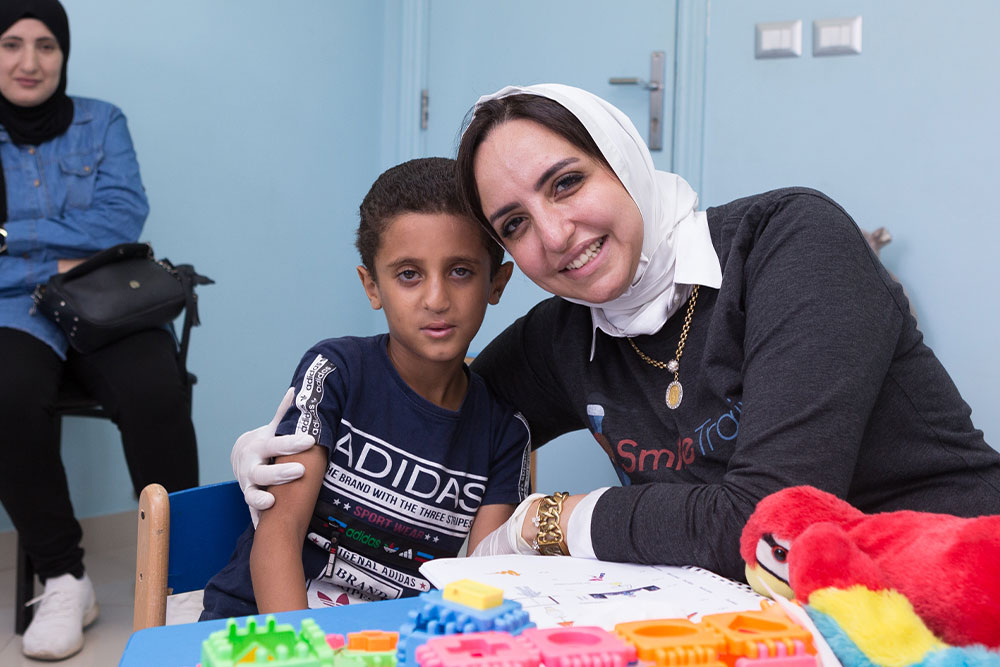
What's your message to Smile Train’s patients?
I always tell my patients to keep fighting. It's not easy. However, you can do it, especially when there is the whole team behind you.
Take advantage of the best services that you can. You need to go to the orthodontist. You need to see the surgeon. You need do your speech sessions and follow-ups. You need to go to the psychiatrist. You need to go to the nutritionist. You need to smile! Patients come back for care so much more when we motivate them and when they see good results, when we keep telling them that we are all here for them.
Your gifts to Smile Train help empower fearless women healthcare workers like Dr. Adel, plus her patients and their mothers in more than 75 countries.
Our impact in Egypt
as of March 2023
